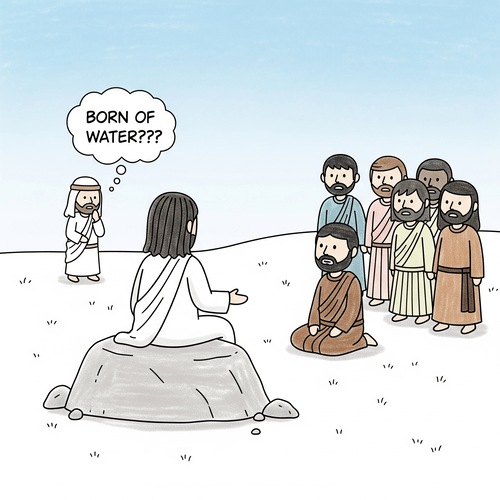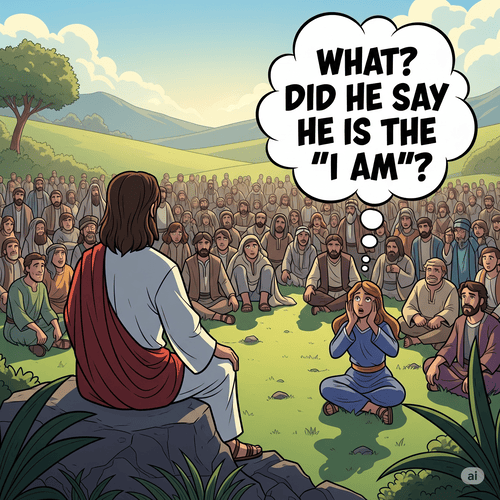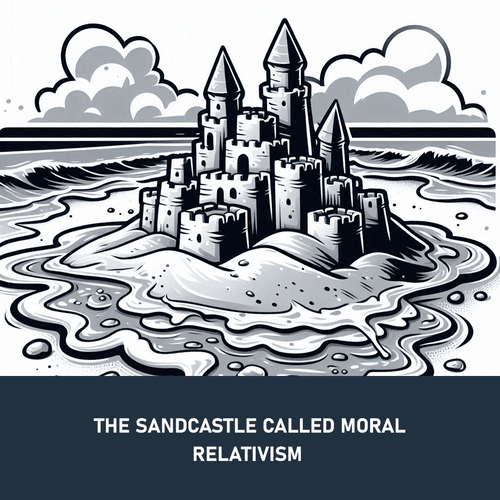Why Christian Apologetics Matters: 8 Myths Debunked
Why Christian Apologetics Matters Now More Than Ever
Christian apologetics often gets a bad rap—even in the church. Some see it as hostile arguments, others as dry academic pursuits. But what if apologetics is actually about a passionate defence of truth and a deeper understanding of our faith? Come join us as we consider why Christian apologetics matters, and seek to address common misconceptions about apologetics we hear ever so often:
Myth #1. Apologetics is about arguing and being unpleasant and divisive:
The Truth: Contrary to this belief, apologetics is not about winning arguments but about presenting the truth in love (Ephesians 4:15). Scripture encourages believers to engage with gentleness and respect (1 Peter 3:15) and to pursue peace with everyone (Hebrews 12:14). Apologetics, when done correctly, fosters understanding and builds bridges rather than creating division.
Myth #2. Apologetics is a purely academic exercise. It is only for professionals. You need a PhD to do it well:
Why Apologetics Matters: Anyone can be an apologist! The Bible encourages all believers to be ready to give an answer for their faith (1 Peter 3:15). Apologetics equips you to explain your beliefs clearly and thoughtfully, even without a PhD. While academic rigor has its place, apologetics is not limited to scholars. Every believer is called to give a reason for their hope, regardless of their educational background. God often uses the ordinary to confound the wise (1 Corinthians 1:27), highlighting that a humble heart and a willingness to learn and share are crucial in apologetics.
Myth #3. Apologetics is only a means of evangelism. There is no place for apologetics in the church:
The Truth: Evangelism and apologetics are complementary. While apologetics can be a powerful tool for evangelism, it’s about more than just winning converts. It’s also about strengthening your own faith. By grappling with challenging questions, you deepen your understanding of the Christian Faith and become more confident in your beliefs. Apologetics equips believers to provide answers for seekers and strengthens the faith of believers (Jude 1:3). The Great Commission (Matthew 28:19-20) includes making disciples and teaching them, which aligns with the apologetic endeavour of defending and explaining the faith.
Myth #4. Apologetics only concerns philosophy:
The Truth: While philosophical arguments have their place, apologetics encompasses a broad range of disciplines, including history, science, archaeology, ethics and textual criticism. The Bible itself contains historical narratives, fulfilled prophecies, and scientific insights that affirm its reliability and truth.
Myth #5. Apologetics is only for professionals:
The Truth: Apologetics is for every believer, irrespective of professional status. God uses people from various backgrounds and experiences to testify to His truth. The apostles, fishermen by trade, boldly defended the faith (Acts 4:13), demonstrating that God equips and uses ordinary people in extraordinary ways. God does not call the qualified. He qualifies the called.
Myth #6. Apologetics will ruin your faith:
The Truth: On the contrary, engaging in apologetics deepens faith by addressing doubts and strengthening convictions. Paul’s defence of the Gospel (Acts 26) illustrates how robust reasoning can bolster faith and lead others to Christ. Apologetics encourages a deeper understanding of God’s Word and fosters a confident faith. By examining the evidence, you gain a deeper understanding of why you believe what you believe. This can lead to a more robust and resilient faith.
Myth #7. Christian apologetics is irrelevant in our relativist, post-truth world:
Why Apologetics Matters: In a world hungering for truth, apologetics becomes even more relevant. Apologetics when practiced with love and wisdom, can gently unmask the shallowness and confusion within relativistic narratives. Respectful dialogue and well-reasoned arguments can help reveal the inconsistencies and inadequacies of relativism. Jesus declared Himself to be the Way, the Truth, and the Life (John 14:6), emphasizing the centrality of truth in Christian faith. Apologetics engages with cultural challenges, offering rational and compelling reasons for the hope we have in Christ.
Myth #8. Apologetics can foster pride and arrogance:
The Truth: Apologetics done with the wrong motives or with a prideful spirit can indeed lead to arrogance. However, when approached with humility, recognizing that our understanding is limited and that we rely on God’s grace, apologetics becomes a tool for glorifying God and pointing others to Him.
Apologetics, when rooted in humility and love, guards against pride and arrogance. It should always point back to the greatness of God, the truth of His Word, and the grace extended to us through Christ. Humility in apologetics not only honours God but also makes our defence of the faith more compelling and winsome to others. In a world hungering for truth, apologetics becomes even more relevant.
Why Apologetics Matters: Christian apologetics, far from being divisive or irrelevant, plays a vital role in strengthening believers, reaching the lost, and upholding the truth of the Gospel. By embracing apologetics with humility, love, and scriptural wisdom, we fulfil our calling to be ambassadors of Christ in a world desperate for answers and hope.
Related Reads:
Editor’s Pick

The Problem of Divine Absence: How Do Believers Cope?
WHEN GOD SEEMS FAR: THE GREAT DISCONNECT Ever wondered why God seemed so close to Joseph in his Egyptian prison, [...]

Is ‘Gay Christian’ a Biblically Acceptable Identity to Have?
THE QUESTION OF IDENTITY IN BIBLICAL PERSPECTIVE The term “gay Christian” has become increasingly common in contemporary religious discourse, representing [...]

What Does ‘Born of Water’ in John 3:5 Mean?
THE REFORMED VIEW VS OTHER INTERPRETATIONS ”Jesus answered, ‘Truly, truly, I say to you, unless one is born of water [...]

The Lordship Salvation Controversy: What’s It All About?
Can someone be truly saved without making Jesus Christ their Lord? The question sits at the heart of one of [...]

1 John 5:6: How Do Water and Blood Reveal Jesus’ True Identity?
"This is he who came by water and blood—Jesus Christ; not by the water only but by the water and [...]

Is Jesus Yahweh? Answering Unitarian Objections
The question of whether Jesus Christ is truly God has divided Christians for centuries. While orthodox Christianity has consistently affirmed [...]

Matthew 3:11: What Is the Baptism of Fire?
When John the Baptist declared, “He will baptise you with the Holy Spirit and fire” (Matthew 3:11), his words carried [...]

From Rock to Stumbling Block: Why Jesus Called Peter Satan
In the span of just six verses (Matthew 16:13-28), Peter goes from receiving the highest praise from Jesus to getting [...]

Can Repentance be Real If We Struggle With Habitual Sin?
We’ve been there before. The weight of conviction sinks in as we realise we’ve fallen into the same sin. All [...]
The Ketef Hinnom Scrolls: An Accidental Yet Phenomenal Find
SMALLER THAN OUR PALM, OLDER THAN THE DEAD SEA SCROLLS In 1979, a bored 13-year-old volunteer at an archaeological dig [...]






